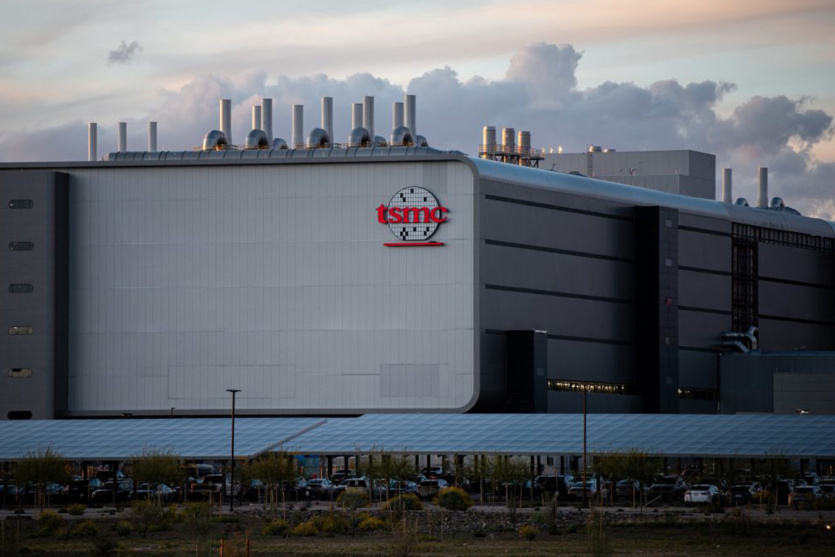
It seems that Asian and Eastern European companies that open factories in the United States bring their «production culture» there. According to testimonies, American employees of TSMC and PC manufacturer EKWB from Slovenia face racism, rudeness, overtime, underpayment, and false accusations.
TSMC
The world’s leading chipmaker, TSMC, has been one of the biggest beneficiaries of the US CHIPS Act, with at least $6.6 billion in investments in US fabs. The company is the largest in Taiwan, with an estimated value of $660 billion. However, it is also known for its 12-hour working day and weekend work, as well as for mistreatment by managers. They call employees in after hours, threaten them with dismissal for minor failures, and so on. This is not surprising in Taiwan, but Americans are not used to this kind of treatment.
Website Rest of World says that American engineers traveled to Taiwan back in 2021 to receive training at TSMC’s production facilities before the start of two new fabs in Arizona. They were shocked to see 12-hour workdays and high management pressure. The inability to prioritize tasks and instead expect a frantic intensity to complete each one was independently condemned by the Americans as poor management. Americans received tasks with time frames that would not allow them to be completed without using personal time.
Subsequently, the American workers were returned to the factories in Arizona along with their Taiwanese counterparts. Construction has faced numerous delays and is about a year behind schedule, but many Americans left TSMC during the training phase in Taiwan, and others found that upon returning to the United States, they discovered that the company’s work culture had spread to the new fabs.
- The engineers who were supposed to work on the production lines were instructed to remove the garbage after the builders.
- Taiwanese managers had to undergo training on how not to yell at employees in public, which did not stick.
- The engineers discovered that they would have to fake the test results of the wafers they produced to meet management’s expectations.
Taiwanese workers, who are used to such violations of rights, and American workers, who are used to complaining or quitting under the same conditions, have not been able to interact adequately. Americans complain about «Asian culture», and Taiwanese engineers consider their colleagues arrogant and carefree. Conflict between employees is actually also a «merit» of the company, because it is caused by working conditions.
EKWB
Founded in 2003 by Edvard Konig, EKWB (Edvard Konig Water Blocks) is headquartered in Komend, Slovenia. The US branch was located in San Antonio, Texas, until its offices closed last month. The firm sells custom water cooling components and manufactures water-cooled PCs under the Fluid Gaming brand, as well as Fluid Works corporate workstations.
Website PCGamesN reported that former business and product development manager Dan Henderson accused the company of racism. У Tom`s Hardware spoke with Henderson and four other former team members from EKCS, the company’s US division. They all painted a «chaotic and toxic» picture of the workplace.
Earlier, several former employees accused EKWB of creating a hostile work environment filled with racist jokes and offensive rhetoric at the company’s offices in Texas. Employees also say that the firm did not pay them for overtime and that it damaged relationships with suppliers by repeatedly delaying payments.
Slovenian managers repeatedly humiliated American employees, calling them lazy and stupid, and blamed them for problems with the company’s inventory management, while the company’s internal accounting software was malfunctioning. According to former regional sales manager Jemari Serrati, employees often spent hours trying to count products on the shelves in an effort to compensate for the software’s shortcomings. However, managers in Slovenia accused the American staff of stealing inventory to explain the problems.
The offensive language went far beyond simply calling the employees stupid or lazy and escalated to outright racism. Serrati, the only African-American employee in the office, said that a former colleague made racist jokes comparing him to chocolate and almost hit him with a forklift several times. A visiting manager from Slovenia also told Serrata a racist joke about chocolate.
When there were no non-white employees, the jokes could have been even worse. Another former employee said that some managers described Hispanic employees as «lazy Mexicans».
Henderson claims that the company promised him commissions on all sales in his contract, but then failed to pay them. On one occasion, he invoiced the company for a commission he was supposed to pay and received a message from management saying that they did not believe he was entitled to the commission and that he would have to agree to new terms if he wanted to continue working there. At another point, he was paid the commission he was due, but then the company refused to pay his regular salary for several months of work, claiming that the «random» commission payment was in lieu of a month’s salary.
It was after the company refused to pay the missing money that Henderson decided to make a public statement. He claims that the company threatened him with a lawsuit and demanded €70,000 unless he deleted his LinkedIn post.
Employees also complained about potentially dangerous conditions in the warehouse. They were required to operate a forklift, even though no one in the company was licensed to do so. Warehouse workers were forced to stand on stacked boxes very high with the risk of falling.
Henderson says he wanted to speak out not only to get the compensation he believes he is entitled to, but also because his colleagues are getting a chance to get paid as well.

Spelling error report
The following text will be sent to our editors: